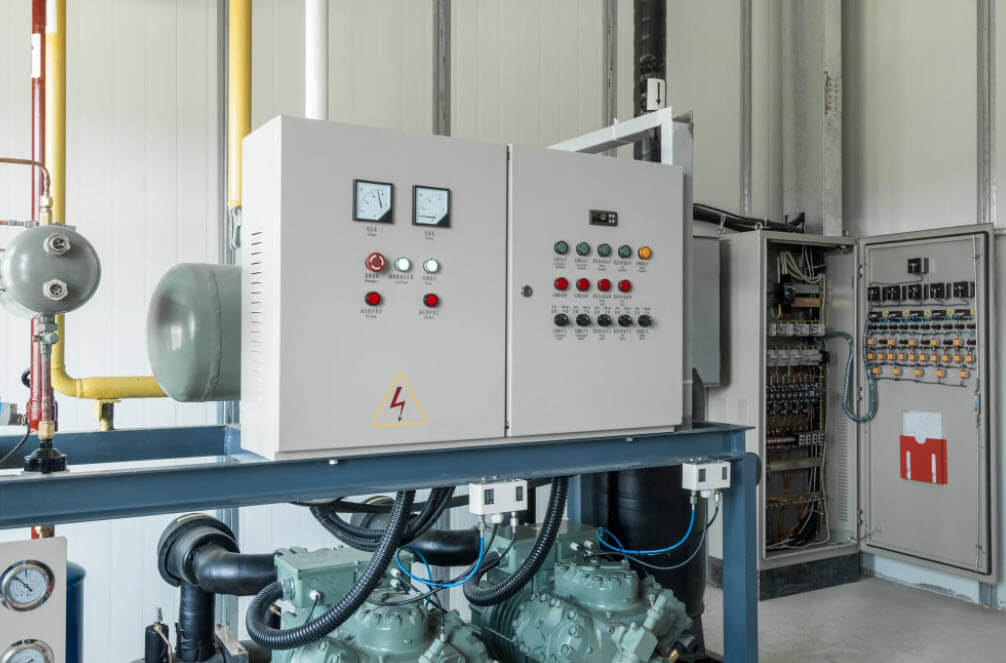Industrial Automation Engineering: Smart Manufacturing

Industrial automation engineering is at the heart of the digital transformation sweeping across manufacturing and industrial sectors. As industries strive for greater efficiency, reduced downtime, and smarter operations, automation engineering plays a pivotal role in integrating advanced technologies with mechanical systems to create seamless, data-driven workflows.
By combining electrical engineering, computer science, and industrial process design, industrial automation engineers design, implement, and maintain control systems that make modern factories and processing facilities faster, safer, and more productive. From PLC programming and control panel design to SCADA systems and IoT integration, industrial automation engineering empowers industries to do more with less—more output, less waste, and greater precision.
What Is Industrial Automation Engineering?
Industrial automation engineering involves the development and deployment of systems and technologies that automate industrial processes. It merges hardware (like sensors, actuators, and control panels) with software (like programmable logic controllers and SCADA systems) to replace or supplement manual tasks.
Engineers in this field are responsible for:
-
Designing control systems for manufacturing equipment
-
Programming PLCs and configuring HMIs
-
Building and integrating custom control panels
-
Developing SCADA systems for remote monitoring and control
-
Implementing networking and communication protocols between machines
-
Analyzing system data to optimize performance
These professionals are critical to implementing Industry 4.0 technologies, including real-time monitoring, predictive maintenance, and artificial intelligence.
The Value of Industrial Automation Engineering
Modern production lines demand speed, consistency, and adaptability. Here's why industrial automation engineering is indispensable:
-
Increased Efficiency: Automated systems significantly reduce cycle times and production bottlenecks.
-
Improved Quality: Sensors and real-time controls reduce the likelihood of human error.
-
Cost Savings: Energy-efficient operations and fewer labor requirements lower operating expenses.
-
Scalability: Systems can be designed to grow with your facility’s needs.
-
Data-Driven Decision Making: Access to real-time data allows for proactive decision-making and process improvement.
Whether you run a food processing plant, a water treatment facility, or a packaging line, automation engineering helps you achieve operational excellence.
Expert Automation Services from Xtreme Automation LLC
For tailored, end-to-end automation solutions, Xtreme Automation LLC is your trusted partner in industrial automation engineering. With years of industry experience and a team of highly skilled engineers and technicians, they specialize in creating intelligent, reliable, and scalable automation systems for a variety of sectors.
Their services include:
-
Custom control system design
-
PLC and HMI programming (Allen-Bradley, Siemens, and more)
-
UL508A-certified control panel fabrication
-
SCADA and telemetry system development
-
Electrical installation and commissioning
-
System diagnostics, upgrades, and ongoing technical support
From initial concept to final commissioning, Xtreme Automation LLC provides comprehensive solutions tailored to your specific operational goals.
Industries That Depend on Industrial Automation Engineering
The scope of industrial automation engineering is vast, touching nearly every industry that relies on machinery and process control. Key sectors include:
-
Manufacturing: Automating complex production lines, quality checks, and robotic systems.
-
Water/Wastewater Treatment: Managing pumps, filtration systems, and remote monitoring stations.
-
Food and Beverage: Maintaining consistency, safety, and traceability across production.
-
Pharmaceuticals: Automating cleanrooms, HVAC systems, and batch processing.
-
Oil & Gas: Ensuring safety, reliability, and efficiency in drilling and refining operations.
-
Energy and Utilities: Controlling power distribution, monitoring energy usage, and integrating renewables.
Each of these industries benefits from automation engineering that delivers high performance, reduces waste, and ensures compliance with industry standards.
What to Look for in an Industrial Automation Engineering Partner
When choosing an automation engineering company, consider the following:
-
Experience and Certifications: Look for firms with a proven track record and certifications like UL508A and OSHA compliance.
-
Customization: No two facilities are alike. Your engineering solution should be tailored to your equipment, goals, and budget.
-
Technology Proficiency: Ensure they have expertise in multiple platforms (e.g., Rockwell Automation, Siemens, Schneider Electric).
-
Support and Maintenance: Look for providers offering long-term support, remote monitoring, and fast response times.
-
Client Focus: A good partner prioritizes your operational success—not just the project.
XtremeAutomationLLC checks all these boxes, delivering solutions that align with your business vision and scale with your growth.
Embracing the Future of Automation
The future of industrial automation engineering lies in smart technologies like:
-
Industrial IoT (IIoT)
-
Edge and cloud-based analytics
-
Machine learning for predictive maintenance
-
Digital twins for system simulation
-
Cybersecurity integration for OT networks
Forward-thinking companies are already adopting these tools to stay competitive, and partnering with an innovative engineering firm is the first step toward full digital transformation.
Conclusion
Industrial automation engineering is not just about technology—it’s about enabling smarter, safer, and more efficient operations. With automation becoming the backbone of modern industry, investing in expert engineering is essential to staying ahead.




